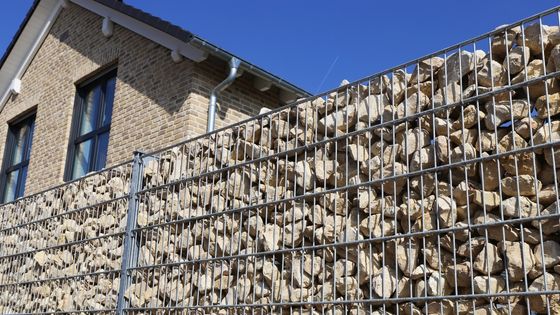If you are looking for an ambitious addition to your back garden or even your front yard, you may have considered building a gabion fence.
For those who don’t know, a gabion fence is a cage, a cylinder, or a box filled with rocks or concrete, and, in some instances, there can also be sand and soil. Initially, gabion fences were designed to control land sliding near the side of roads, but due to their rustic chic style, they have worked their way into many gardens simply because they look cool.

So, if you are looking to install a gabion fence, you will need to follow a few tips to make the process easier. In this article, some of the key things to consider when fitting a gabion fence will be explored.
Call A Professional!
If you are a fan of watching garden makeover shows, you may assume that fitting a gabion fence looks as easy as it does on TV, but rest assured, this is not the case! An improperly fitted gabion fence can quickly become a hazard to your garden or even pose safety threats to you and your neighbors, especially if it were to fallover.
So, the first thing you need to do when looking to have a gabion fence installed is to hire a contractor to do it for you. They will have expert knowledge on and access to gabion stone fencing products, which will allow the fence to be put up correctly and will ensure that it stays in place.
Flatten The Ground
There are some things you can do to ease the fence-raising process. For one, you can flatten the ground and layout the site – be sure to use a carpenter’s level and a string line to check that the foundation is firm and solid. If you have sandy or clay soil, you may need to replace around six inches with gravel or concrete. This will help with the weight of the fence to keep it stable and to support it.
Install Columns
Again, it can be tricky to install columns and may be best left to a professional. But if you are physically able and feel you can handle this task, there is no harm in trying! Still, remember a gabion fence has no structural integrity, so internal support posts are vital.
Aim to bury each column around three to four feet deep and then add dry concrete to help fix it in place. Make sure that the concrete has had one or two days to dry before the contractors arrive to install the wall.
Pick The Rocks
It is usually left to the people who are making the fence itself, but if you have a lot of rocks in your garden, you can choose which ones go into your fence. Try to make sure that they vary in size. While it can be tempting to buy pre-sized rocks, this will not give the rustic look that is usually desired with a gabion fence.
Maintain The Fence
Gabion fences are rather straightforward to maintain. Still, you may want to check every few months or so (especially if you live in a damp area) that the fence remains level and that it is not sinking. If you notice that the fence is slanted to the side or appears to be sinking into the ground, call a contractor and do not attempt to lean on it or approach it.
